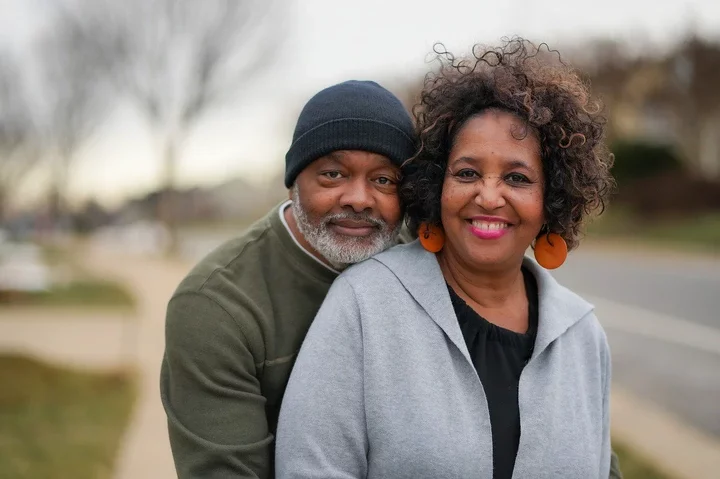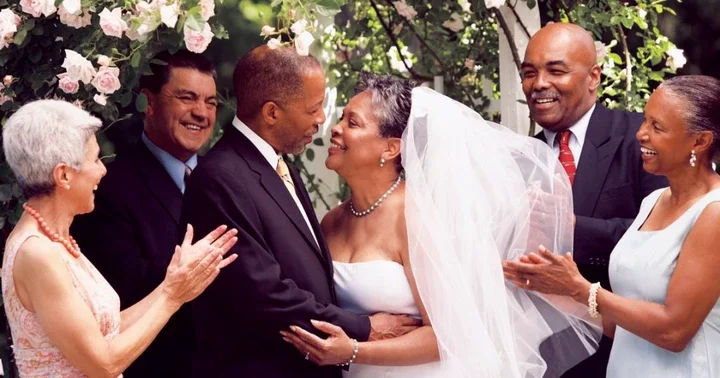
As years go by, many couples drift apart, and the novelty of marriage gives way to routine. Often, when children are involved, they naturally take priority and the relationship is sidetracked. Eventually, many couples start asking themselves, "Where did we go wrong?"
It's one thing to fall in love. It's another to stay in love across decades of change, conflict and seasons where the spark dims and the marriage is barely surviving. Yet, with time, the couples who come out more resilient are the ones who consistently realign themselves by asking these three questions.
1. Are We Growing Together Or Just Coexisting?
In a 2021 study published in Psychological Reports, researchers explored how intrinsic motivation, the internal drive to act based on interest, personal importance or inner values, affects satisfaction in long-term romantic relationships.
Using a sample of 331 adults, including many who were married for over a decade, they found that higher levels of intrinsic motivation were significantly associated with greater emotional closeness, perceived relationship support and marital satisfaction.
That is, relationships endure not because individuals promise to stay committed but because they are self-motivated to invest, participate and develop. It's the internal push that tells you, "I want to get to know you better," or "I'm interested in who we're becoming." That inner desire, not duty, is what energizes a relationship emotionally.
So, when days start to feel mundane and routine takes over, it's easy to feel like you're just going through the motions of marriage. That's exactly when it's time to get curious again about your partner.
Do you remember what first sparked your partner's passion? What dreams and interests lit up their eyes? Are those passions still alive? Do you recall falling in love with that spark - the way they talked about what mattered deeply to them, the difference they wanted to make in the world?
Allowing curiosity to guide the way allows you to rediscover one another. It opens a doorway to a marriage in which you both keep developing as individuals and derive motivation from enabling that development within each other.
Asking, "Are we growing together or coexisting?" is not something done once. It's a habit that needs to be practiced regularly. Take time every now and then, even if it's a few minutes, to discuss what is evolving in your lives and how you can be there for each other's growth.
2. Do We Still Want The Same Future Together?
As individuals mature, so do their priorities. The couples who remain connected are the ones who return to the plan. They discuss what still works, what's changed and how to align again.
When two individuals no longer want the same future, disconnection isn't a matter of insufficient love. It means two partners have begun living parallel lives, with incompatible destinations.
Studies of long-term relationship happiness often cite the significance of common values and life alignment. Emotional connection may keep couples together on a day-to-day basis, but it's a common direction that keeps them united over decades.
A 2019 systematic review published in Epidemiology and Health examined what holds long-term marriages together across different countries and cultures. The most consistent protective factors weren't just romantic; instead, they were:
Shared values and religious agreement
Commitment and mutual goals
Role clarity and communication
Spending quality time
Alignment in parenting and responsibilities
When couples align on major decisions, like finances, parenting or where to live, they reduce sources of chronic conflict and increase their sense of partnership. These ongoing conversations don't just prevent misunderstandings; they reinforce the sense that you're still a team, facing life's changes together.
In practice, this looks like carving out time, maybe once a year or during significant life milestones, to discuss what's most important to you right now. Are your aspirations still aligned? Have your priorities changed? Do you need to renegotiate any responsibilities or roles?
You don't need to have all the answers during these check ins. The goal should simply be to remain connected as you both grow and evolve together.
3. Do We Still Feel Safe And Seen Even When We Fight?
In most relationships, conflict isn't the problem; the way it's handled is. For this reason, long-term couples have to learn how to move through it without losing connection, instead of just avoiding conflict altogether.
A 2024 qualitative study published in Contemporary Family Therapy introduced the concept of Jointly Negotiated Conflict Resolution Strategies (JNCRS) - the conflict habits couples actively develop together over time.
After interviewing 90 couples married for 40+ years and surveying over 900 more, researchers identified six core strategies:
Listening. Listening to your partner with the intent to understand and repair, rather than defend yourself.
Avoiding escalation. Backing away before words or emotions spin out of control.
Communicating clearly. Stating needs and feelings without blame, assumptions or vagueness.
Compromising. Finding middle ground without keeping score or trading off fundamental values.
Resolving quickly. Repairing ruptures before they solidify into deeper resentment.
Cooling down. Giving people space when they require it, so conflict is not collateral damage.
Notably, just three of these - listening, conflict de-escalation and clear communication - accounted for nearly half of all responses.
These strategies weren't static. They were evolved through lived experience, shaped by cultural norms, modeled parental dynamics and repeated through trial and error. They kept working to make conflict safer, softer and more constructive for both people involved.
This sense of safety extends to physical health, too. A 2016 longitudinal study published in Emotion tracked married couples for 20 years and discovered that unresolvable emotional behaviors during conflict predicted certain health outcomes down the line.
When anger was the dominant emotion during conflict, cardiovascular symptoms worsened over time. When one or both partners stonewalled - shut down or disengaged - musculoskeletal issues such as back and neck pain became more prevalent.
These impacts didn't immediately appear. They added up gradually, year after year, as tension remained stuck within the body and the relationship. What this shows us is potent: feeling emotionally secure in conflict isn't just beneficial for your relationship. It's a long-term wager on your body, your health and your future.
And so when you ask, "Do we feel safe even when we fight?" and the response is no, that's not the end, but it is a signal. It's a cue to begin working toward a form of communication that safeguards the connection rather than sabotages it. This sense of emotional safety is never a given; it's something unique that couples learn to create and cultivate throughout their lives together.
















Comments